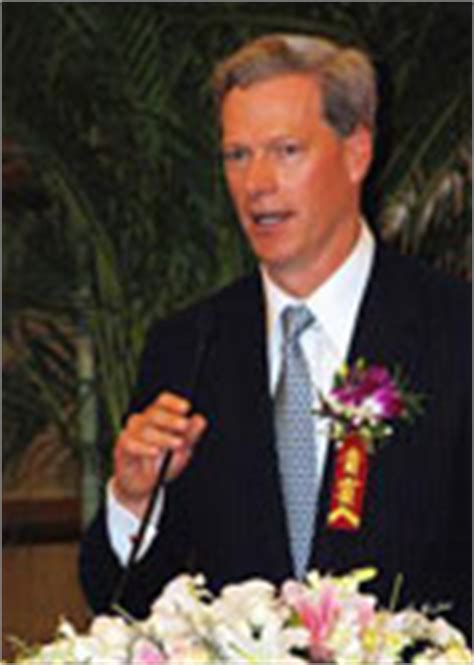A Quote by Steven Clark Rockefeller
Humanity may destroy the possibilities for life on earth unless the freedom and power that we have acquired are channeled in new creative directions by a spiritual awareness and moral commitment that transcend nationalism, racism, sexism, religious sectarianism, anthropocentrism, and the dualism between human culture and nature. This is the great issue for the 1990s and the twenty-first century.
Quote Topics
Acquired
Anthropocentrism
Awareness
Between
Century
Commitment
Creative
Culture
Destroy
Directions
Dualism
Earth
First
Freedom
Great
Human
Humanity
Issue
Life
May
Moral
Nationalism
Nature
New
Possibilities
Power
Racism
Religious
Sectarianism
Sexism
Spiritual
Spiritual Awareness
Transcend
Twenty
Unless
Related Quotes
Nothing better protects a human being against the stupidity of prejudice, racism, religious or political sectarianism, and exclusivist nationalism than this truth that invariably appears in great literature: that men and women of all nations and places are essentially equal, and only injustice sows among them discrimination, fear, and exploitation.
I feel like we're between two great possibilities: we're either going to turn things around, and in this generation see the rising sun of a new moral dedication in America, or we're going to lose the struggle for that moral renewal, throw away the basic principles on which our life and civilization is based, and head toward a new century that will make the 20th century look like a dress rehearsal for evil.
When physics, chemistry, biology, medicine, contribute to the detection of concrete human woes and to the development of plans for remedying them and relieving the human estate, they become moral; they become part of the apparatus of moral inquiry or science? When the consciousness of science is fully impregnated with the consciousness of human value, the greatest dualism which now weighs humanity down, the split between the material, the mechanical and the scientific and the moral and ideal will be destroyed.
Humanity has passed through a long history of one-sidedness and of a social condition that has always contained the potential of destruction, despite its creative achievements in technology. The great project of our time must be to open the other eye: to see all-sidedly and wholly, to heal and transcend the cleavage between humanity and nature that came with early wisdom.
Theologians in all the great faiths have devised all kinds of myths to show that this type of kenosis, of self-emptying, is found in the life of God itself. They do not do this because it sounds edifying, but because this is the way that human nature seems to work. We are most creative and sense other possibilities that transcend our ordinary experience when we leave ourselves behind.
In the spiritual domain, criticism is love turned sour. In a wholesome spiritual life there is no room for criticism. The critical faculty is an intellectual one, not a moral one. If criticism becomes a habit it will destroy the moral energy of the life and paralyse spiritual force. The only person who can criticise human beings is the Holy Spirit.
Our scientific power has outrun our spiritual power. We have guided missiles and misguided men. Our hope for creative living lies in our ability to reestablish the spiritual needs of our lives in personal character and social justice. Without this spiritual and moral reawakening we shall destroy ourselves in the misuse of our own instruments.
The great moral question of the twenty-first century is this: if all knowledge, all culture, all art, all useful information can be costlessly given to everyone at the same price that it is given to anyone; if everyone can have everything, anywhere, all the time, why is it ever moral to exclude anyone?
If you are serious about your religion, if you really wish to commit yourself to the spiritual quest, you must learn how to use psychochemicals. Drugs are the religion of the twenty-first
century. Pursuing the religious life today without using psychedelic drugs is like studying astronomy with the naked eye because that's how they did it in the first century A.D., and besides
telescopes are unnatural.
It is well to start by distinguishing the few really great - the major novelists who count in the same way as the major poets, in the sense that they not only change the possibilities of the art for practitioners and readers, but that they are significant in terms of the human awareness they promote; awareness of the possibilities of life.
John Marshall's warning that the power to tax is the power to destroy has taken on far greater meaning... more specifically, the power of the Internal Revenue Service is threatening to destroy the freedom of religion , guaranteed by the First Amendment. As part of that guarantee, Congress has granted tax exemptions for churches to avoid excessive interference in their religious activities.
Where it is the majority religion, Islam does not recognize religious freedom, at least not as we understand it. Islam is a different culture. This doesn't mean that it's an inferior culture, but it is a culture that has yet to connect with the positive sides of our modern Western culture: religious freedom, human rights and equal rights for women.
Creating harmony amidst diversity is a fundamental issue of the twenty-first century. While celebrating the unique characteristics of different peoples and cultures, we have to create solidarity on the level of our common humanity, our common life. Without such solidarity, there will be no future for the human race. Diversity should not beget conflict in the world, but richness.































